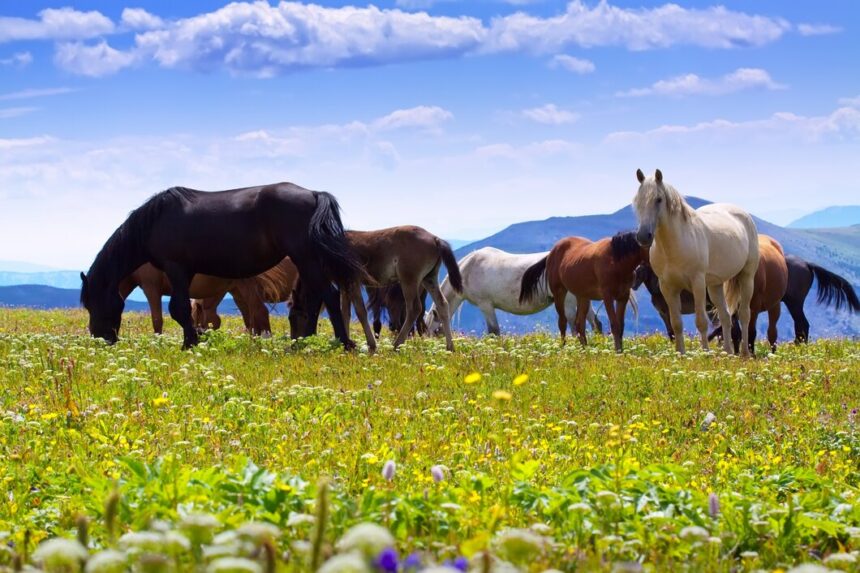South Africa, with its diverse landscapes and rich equestrian traditions, provides an ideal environment for horse breeding and farming. Whether for leisure, sport, or agriculture, horses play a significant role in the country’s rural and recreational pursuits. In this article, we’ll explore ten essential aspects of breeding and farming horses in South Africa.
1. Climate Considerations:
Understanding the regional climate is crucial for successful horse breeding. South Africa’s varied climates, ranging from arid to temperate, impact horse health and wellbeing. Different horse breeds may be better suited to specific climatic conditions, so selecting the right breed for your region is essential.
2. Selecting the Right Breed:
South Africa boasts a variety of horse breeds, each with its unique characteristics and purposes. Popular breeds include the Boerperd, Thoroughbred, and the South African Warmblood. Consider your specific goals—be it racing, agriculture, or leisure riding—when choosing a breed.
3. Nutrition and Forage:
Providing proper nutrition is fundamental to horse farming. South Africa’s diverse ecosystems offer various forage options, but it’s crucial to understand the nutritional needs of horses and supplement their diet accordingly. Regular access to clean water is equally important.
4. Disease Management:
Horses are susceptible to various diseases, and preventive healthcare is paramount. Regular vaccinations, deworming, and hoof care are essential components of a comprehensive disease management plan. Consult with a veterinarian to establish a tailored healthcare schedule.
5. Adequate Shelter and Facilities:
Horses require proper shelter to protect them from extreme weather conditions. Additionally, well-designed facilities, including stables, paddocks, and riding arenas, contribute to the overall health and happiness of the animals.
6. Breeding Practices:
Understanding the intricacies of horse breeding is vital for success. Whether natural breeding or artificial insemination is employed, a thorough knowledge of the breeding cycle, gestation period, and foaling process is essential. Consider seeking guidance from experienced equine breeders or veterinarians.
7. Equine Training and Handling:
Proper training and handling are crucial for the development of well-behaved and disciplined horses. Consistent and positive reinforcement techniques contribute to a horse’s adaptability, making them suitable for various activities, from agricultural work to recreational riding.
8. Legal and Regulatory Compliance:
Compliance with legal and regulatory requirements is integral to horse farming in South Africa. Familiarize yourself with local animal welfare laws, transport regulations, and any specific guidelines related to equine activities in your region.
9. Market Considerations:
Understanding the market for horses in South Africa is essential, particularly if breeding with the intention to sell. Consider market trends, buyer preferences, and the demand for specific horse breeds or skills. Networking within the equestrian community can provide valuable insights.
10. Community Engagement and Events:
Participating in local equestrian events and engaging with the community can enhance your horse farming experience. Attend shows, races, or exhibitions to showcase your horses, build connections, and stay informed about the latest developments in the equine industry.
Breeding and farming horses in South Africa is a multifaceted endeavor that requires a blend of knowledge, passion, and dedication. Whether you’re cultivating horses for agricultural purposes, competitive sports, or recreational riding, a holistic approach to their care and management is crucial. By staying informed, adhering to best practices, and fostering a love for these majestic animals, you can embark on a fulfilling journey in the realm of horse breeding and farming in the diverse landscapes of South Africa.
Join 'Farmers Mag' WhatsApp Channel
Get the latest Farming news and tips delivered straight to your WhatsApp
CLICK HERE TO JOIN






